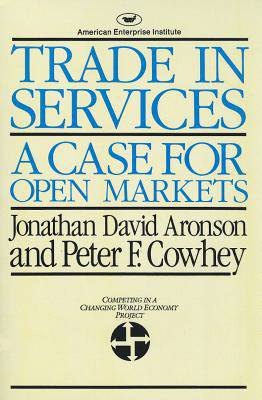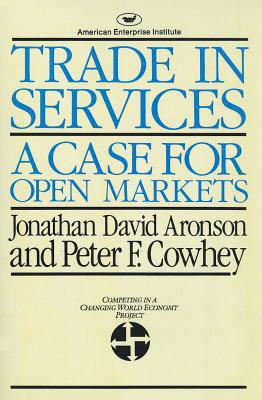
- Afhalen na 1 uur in een winkel met voorraad
- Gratis thuislevering in België vanaf € 30
- Ruim aanbod met 7 miljoen producten
- Afhalen na 1 uur in een winkel met voorraad
- Gratis thuislevering in België vanaf € 30
- Ruim aanbod met 7 miljoen producten
Omschrijving
Although the service sector has been largely ignored in the world trade system, trade in services has in the past two decades become an important source of jobs and economic growth. In 1980 global service exports totaled about $370 billion, about 20 percent of world trade. Yet no coherent system of rules and procedures governs trade in services. Multilateral trade negotiations did not even consider services until Tokyo Round negotiations of the mid-1970s, and then only at US insistence. Since then US persistence has begun to reap results. Trade in services was one of the three most debated issues at the November 1982 General Agreement on Tariffs and Trade (GATT) ministerial meeting, and the May 1983 Williamsburg Summit's closing statement included a commitment to work toward free trade in services.
Do services merit a prominent place in the trade agenda of the United States? Even if services deserve a high priority in principle, is it feasible to negotiate general rules for the services trade under GATT? Are other countries willing to change their longstanding history of regulation of services markets and to expose their national firms to the challenges of large US service firms? If the United States enters into multilateral negotiations on services, what might it expect to achieve?
Specificaties
Betrokkenen
- Auteur(s):
- Uitgeverij:
Inhoud
- Aantal bladzijden:
- 54
- Taal:
- Engels
- Reeks:
- Reeksnummer:
- nr. 415
Eigenschappen
- Productcode (EAN):
- 9780844735702
- Verschijningsdatum:
- 1/06/1984
- Uitvoering:
- Paperback
- Formaat:
- Trade paperback (VS)
- Afmetingen:
- 150 mm x 221 mm
- Gewicht:
- 90 g

Alleen bij Standaard Boekhandel
Beoordelingen
We publiceren alleen reviews die voldoen aan de voorwaarden voor reviews. Bekijk onze voorwaarden voor reviews.












